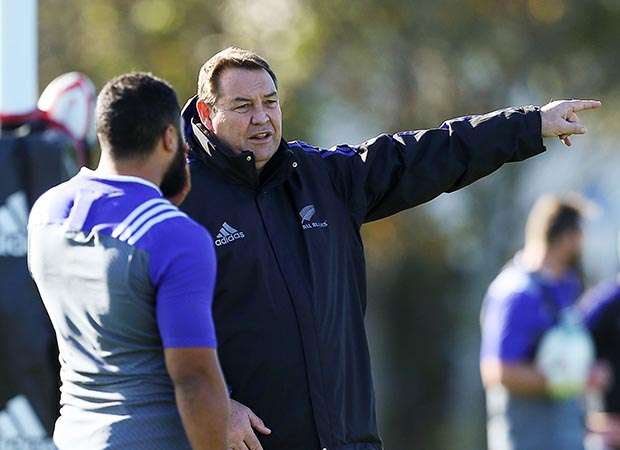 Talk about letting the inmates run the asylum! Sometimes you have to wonder if those working in the professional game have any idea of the possible repercussions of what they suggest.
Talk about letting the inmates run the asylum! Sometimes you have to wonder if those working in the professional game have any idea of the possible repercussions of what they suggest.
Steven Hansen's idea for play-offs between European club champions and the Super Rugby winners plus the winner of the Six Nations playing the Rugby Championship winner is madness.
He says: “It's a no-brainer” and asks: “What's best for our product so we can keep attracting people to come and watch it?” His answer: “First, our players need a decent pre-season. You'd play club competitions simultaneously. We could have the European Cup winners play the Super Rugby winners and the Six Nations winners play the Rugby Championship winners.”
Therefore, not only does he want the club game moved but also all the international matches allowing for play-offs to fit in at the end of the season.
There are just a few small problems with his “no-brainer” idea; first, he hasn't answered the $64 million dollar question, who moves from winter to summer to accommodate the synchronised start to the season?
Although the Premiership have talked about a potential move to summer fixtures, I don't think they would embrace a total change of season and I am pretty certain that the Top 14 would definitely refuse a move. It would be easier to move Super Rugby as it is owned by the Unions, creating fewer problems in forcing the change.
As for the international game, the Six Nations is the cash cow that funds the whole of the Northern Hemisphere game (apart from in France) and has a historic place in the sporting calendar.
I really can't see it being moved to September /October and I doubt that all the countries playing in the Rugby Championship would agree to a move to February/March.
Unlike the Southern Hemisphere where the Unions control everything, two of the biggest players in the game in the Northern Hemisphere are the French and English clubs. They will not want to have their seasons truncated in order to accommodate extra internationals.
There is even a strong possibility that they will want to carry on playing during the internationals, possibly extending the season with fixtures against more Super Rugby teams.
After all, when offered a break in the season while the Six Nations was on, they refused, stating they couldn't have a long break in the season without it impacting on their finances.
That brings player welfare into the equation. With players playing the hardest matches at the end of a long club and European season, the real risk of injury would increase as fatigue and other factors come into play.
Whereas the Super Rugby teams play a maximum of 20 matches a season, Premiership clubs can play around 34 matches if they go all the way to the final of the European competition with Top 14 clubs playing even more.
Then there is the potential impact of those matches on the development of the game by compromising the integrity of the World Cup, and with it World Rugby's biggest money earner.
The World Cup has, in the main, been a play-off of the best of the north against the best of the south with six of the eight finals having a team from each, although not necessarily the winners of the local competitions.
The money raised by the RWC helps World Rugby fund many of the important development programmes in the minor nations, thus helping them with basic equipment and coaching etc.
Playing what amounts to a World Cup final every year at club and country level could also reduce interest in the Rugby World Cup having a negative impact on the level of sponsorship and broadcasting revenues.
The only way to reduce that effect would be for both to be organised and run by RWC as in football, where FIFA took control and run international competitions for clubs and countries.
As the teams taking part would want a lion's share of any money made from the proposed new play-offs, the Premiership and Top 14 would probably want to run it themselves as they do for the Rugby Champions Cup.
Even though club play-offs would be less of a challenge to RWC and could work well, I doubt the Unions would accept the clubs running it; so unless a compromise can be reached, it may never get off the ground.
Add to all this the question of where the games are to be played and how that could impact on tour schedules for the countries involved, let alone when it comes to Lions tours, there are some serious obstacles to overcome.
As all countries try to find new ways of funding the professional game, two new ‘super games' seem ideal at first glance as there could be a ‘world champions' play-off with much more money for all involved.
Looking at the history of the Southern Hemisphere Tri-Nations and Rugby Championship, the All Blacks have won 13 out of 20 tournaments, three of those out of the last five. The only “no-brainer” is; why he, as New Zealand coach, thinks it should happen!


























